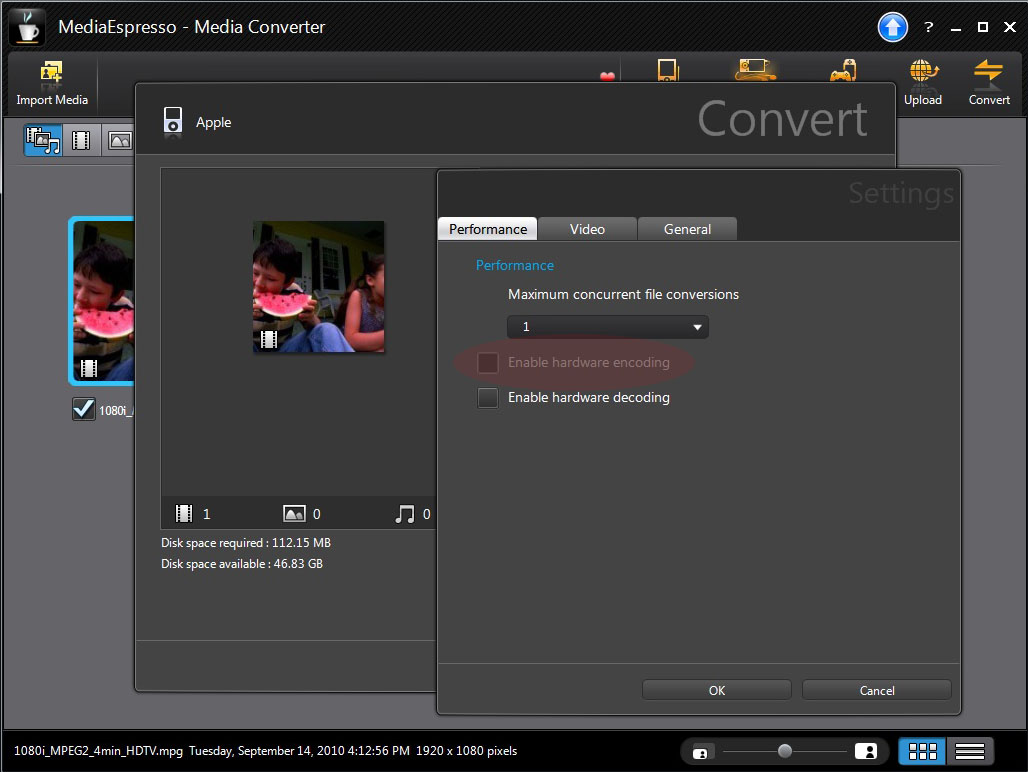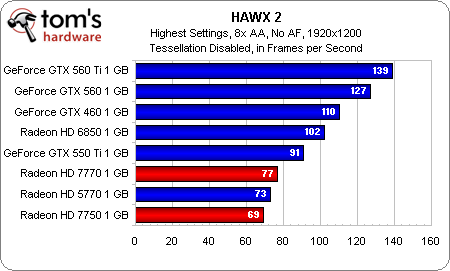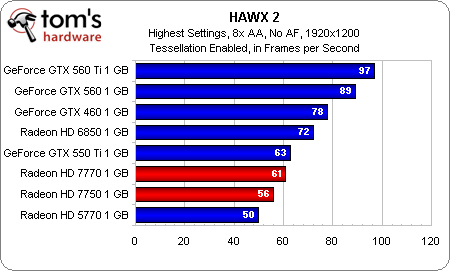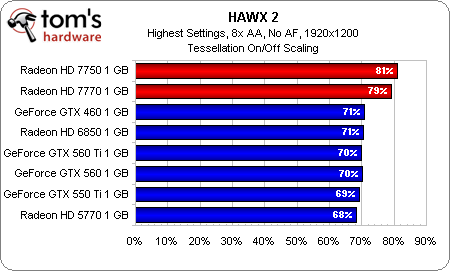AMD Radeon HD 7770 And 7750 Review: Familiar Speed, Less Power
These are the lowest-end cards built using AMD's new Graphics Core Next architecture. Is 28 nm manufacturing, a fresh design, and new functionality enough to warrant upgrading existing value-oriented champs like the Radeon HD 6850 and GeForce GTX 460?
Flexible Form Factors And Tessellation Performance
By virtue of its dual-slot cooler, 8.5” PCB, and auxiliary power requirement, the Radeon HD 7770 qualifies as a gaming card, despite its mid-range target audience. Most ATX-based HTPC enclosures will accommodate it, but it’s certainly on the larger side for that application.
The Radeon HD 7750, however, is far more flexible. As you’ll see in the benchmarks, it’s generally not as fast as a Radeon HD 5770. But I don’t do a ton of gaming on my HTPC. Rather, I want that machine to be fast enough, quiet, and cool to the point where I don’t need my cabinet’s door open for air circulation. On paper, the 7750 should be a shoo-in.
I pulled the Radeon HD 5770 out of my existing HTPC, where it has lived for more than two years, and replaced it with the new single-slot board. Pressed for time, I didn’t take before and after power, thermal, or acoustic measurements. But from a seat on the couch, the noise during movie playback was similar, while cabinet heat was down very significantly.
As with the Radeon HD 7950, I tested to be sure the card’s protected audio path is recognized, and PowerDVD gave no protest to bitstreaming Dolby TrueHD and DTS-HD Master Audio to my receiver.
I did run into a bit of strange behavior while testing hardware-accelerated decode support. Using PowerDVD 10 and 12, toggling the feature on and off had no impact on performance, good, bad, or otherwise. With my Phenom II X4 905e-based PC running at 2.5 GHz, CPU utilization floated between 15 and 20 percent. Enabling Cool’n’Quiet kept the machine at 800 MHz, which pushed utilization up above 30%. Our minds were put at ease when we installed Arcsoft's Total Media Theater and easily switched between hardware acceleration on and off, returning utilization numbers around 8% with UVD 3 enabled and averaging 37% using software decoding.
Also, still noticeably missing is AMD’s fixed-function, hardware-accelerated encode support, enabled through the Video Codec Engine. This feature was announced alongside the Radeon HD 7970. It’s present in the Radeon HD 7950, and it carries over to Cape Verde, too. According to AMD, there are already software vendors with VCE support in their transcode-oriented applications. But it says functionality isn’t ready for production, and is turned off at the driver level. Presumably, a future update will flip a switch and expose the feature.
Until then, shader-based encoding acceleration should be working fine. Unfortunately, we still haven’t seen that in practice on a 7000-series card, either. Worse, it now seems broken on the Radeon HD 6000-series cards, too. The above shot shows the check-box greyed out.
Get Tom's Hardware's best news and in-depth reviews, straight to your inbox.
Tessellation: Who Needs A PolyMorph Engine, Anyway?
Nvidia’s Fermi architecture put a big emphasis on geometry performance. Each of the design’s Shader Multiprocessors got its own PolyMorph Engine, in fact, to help parallelize the handling of vertices. At the time, AMD’s own geometry throughput lagged behind, and Nvidia pointed to applications like HAWX 2 as evidence of its competitor’s shortcoming in the coming wave of tessellation-enabled DirectX 11 titles.
Well, we know how that turned out. Successively, in the Barts-based Radeon HD 6800- and Cayman-based Radeon HD 6900-series line-ups, AMD made improvements to its geometry engine (and then engines, plural) to the point where it retained the same relative performance with heavy tessellation enabled in tests like HAWX 2 and Unigine’s engine benchmark. Then, we saw the Radeon HD 7900-series deliver percentages that exceeded what Nvidia could achieve. Even though the GeForce cards cranked out higher frame rates, turning on tessellation was “cheaper” on a Radeon HD 7970 or 7950.
The same story holds true here. In absolute terms, the Radeon cards end up at the bottom of the stack—and it’s entirely possible that Nvidia’s cozy relationship with Ubisoft during development plays a role in affecting the raw performance numbers. But as a percentage of frame rate with tessellation turned off, enabling the DirectX 11-oriented feature has less of an impact on the Radeon HD 7770 and 7750.
Current page: Flexible Form Factors And Tessellation Performance
Prev Page Overclocking With XFX’s R7770 Black Edition Overclocked Next Page Test Setup And Benchmarks-
Derbixrace the 7750 will be a GREAT card compared to the 6670 for those who have a shitty 300w PSU and wants a nice GPU.Reply -
phamhlam If the 7770 is the same price as the 6850. I think we have the best value card right here. The 6850 was a great budget card but this card will change that.Reply -
dragonsqrrl "Although other cards beat it in encryption and decryption performance, the Radeon HD 7750 easily secures a second-place finish in the SHA256 hashing test."Reply
I think you mean AES256. -
jprahman The fight shaping up between all these new AMD cards and Kepler is looking to be a good one. Time to just sit back with some popcorn and enjoy the show... while planning a new build for when the price war breaks out.Reply -
esrever Seems ok, New stuff ussually cost more. The 6770 being more expensive than the 5770, the 6870 being more expensive than the 5850 ect.Reply
I'd expect prices to go down once supply goes up and demand goes down. -
confish21 What a sad release. I'm not even excited for Pitcairn now! I foresee the $170 6870 to hold its own.Reply -
This is ridiculous. Man this sucks, i've been waiting for the 7770 since early last year, and this crap is what they release?Reply
What_were_they_thinking? -
wicketr Well....here's hoping for a good 7850/7870 release on March 6th. Not much here worth spending money on IMO.Reply -
buzznut This is unfortunate, considering the naming scheme. The 4770, 5770, and 6770 were/are all good budget cards that performed above where they were priced. Bang for buck has always been the draw here, but that 7770 is overpriced. Hopefully AMD will see this fumble; I agree at $120-130 this card makes a lot more sense.Reply
I'd actually like to see the HD 7750 at a lower price too, as we know these prices will drop over time but I still think this is slightly high for launch.




